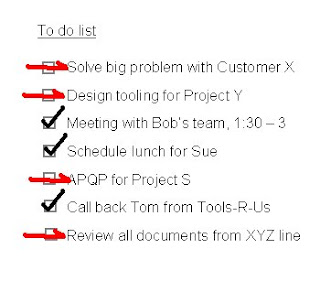
If statistics show that
88% of people leave a job because of how they
feel they are being treated, would building an organization with people who had excellent
soft side skills help raise employment retention rates and keep everyone staying put longer?
Long ago I found myself interviewing with a small private company anticipating the landing of my first job out of college with a highly respected firm. During the final interview, I got an early and abrupt taste of their culture when I got slapped in the face.
And by slapped, I'm talking about hearing the following:- We work most Saturdays, minimum two per month
- There is no swearing. Ever
- We pray at every company meeting
- You'll be expected to put in on average 60 hours per week
- And OH, don't worry about looking up for your next job, your manager will constantly be on the look out for you to grow within the company"
At that time, I had already worked four years in industry at four different companies and never had I heard or experienced such things. Not being a morning person, my mind was still stuck on the 7am part; I just kep smiling and nodding my head robotically.
Knowing I still had much to learn and wanting to work at this firm, I took the job; slap and all.
I won't deny the mornings were tough but soon I began to welcome the 7am starts because of the smiling faces of all the staff that would greet me during our morning stretch routines.
Gratitude exuded from all in that we were
showing up for each other.
Saturdays were a whole other ball game. It was difficult at first, but it changed for me also. Reluctantly I dragged myself in weekend after weekend to donuts, more smiling faces, and sometimes an on-site cooked breakfast by other colleagues and managers. Rather than the cold slap in the face feeling I had in the interview process, I was experiencing welcome, appreciated, and a part of something bigger. These mornings became great catch-up times where the week days were fast paced and business-only venues. The Saturday mornings were a chance to
reset and decompress as well as spend more time on the production floor
learning about the lives of team-mates.
Some perspectiveThis company is a leader in its industry with a reputation of a high standard of quality. Although also a leader in developing and delivering high tech products, problems arose there just as they do in any other company. There was one difference here though: problems were looked at as opportunites for success rather than opportunities for blame. When a problem arose, it was a time to demonstrate strength in character, not a hot-head full of steam. When "issues" happened, rarely were voices raised. Product issues were simply product issues because it was never interpreted as anyone's fault. It was always seen as a process oversight or a machine failure, not as personal failure by someone or a team, nor an opportunity to degrade people.
So what made the difference?Respect for each other's
abilities,
values, and
contribution made the difference between finger pointing and getting our work done. The attitude
cultivated by leadership to respect and
be present for one another enabled
focus on solving the issues at hand.
Some how there always existed the skill set to solve any problem. Ironically there was always a solution to any problem. Pretty good, huh?
Consensus doesn't necessarily mean a solution that "kinda fits." It is something that is borne of constructive open dialog between trusting colleagues.
Were we just a bunch of rocket scientists who could fix anything? Likely and most definitely
not. It is likely that the company heavily hired engineers that had the people skills first, technical ability second.
Did it make a difference?I'll ask my question again: If 88% of people leave a job because of how they
feel they are being treated, would building an organization with people who had excellent soft skills help raise employment retention rates and keep everyone staying put longer?
What would you do?What works best in your organization and why?This article was originally posted by me on L2L Blogazine, April 8th 2009 *
Image credit to Jim Wilson for The New York Times, Gerlach, Nevada, October 14, 2006, www.nyt.com





